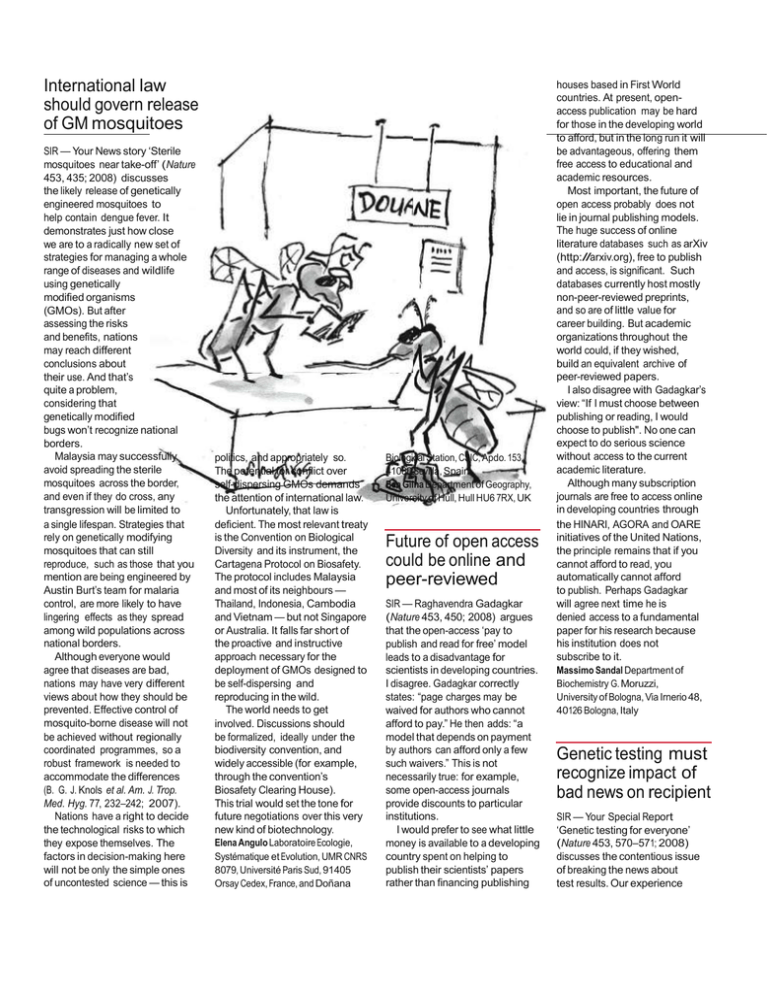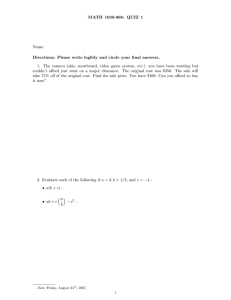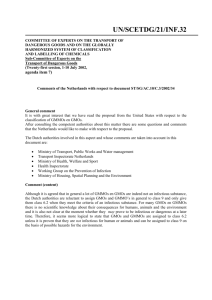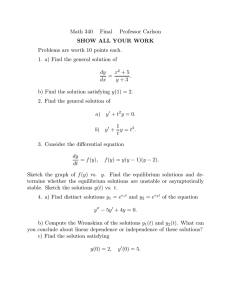38662805.doc
advertisement

International law should govern release of GM mosquitoes SIR — Your News story ‘Sterile mosquitoes near take-off’ (Nature 453, 435; 2008) discusses the likely release of genetically engineered mosquitoes to help contain dengue fever. It demonstrates just how close we are to a radically new set of strategies for managing a whole range of diseases and wildlife using genetically modified organisms (GMOs). But after assessing the risks and benefits, nations may reach different conclusions about their use. And that’s quite a problem, considering that genetically modified bugs won’t recognize national borders. Malaysia may successfully avoid spreading the sterile mosquitoes across the border, and even if they do cross, any transgression will be limited to a single lifespan. Strategies that rely on genetically modifying mosquitoes that can still reproduce, such as those that you mention are being engineered by Austin Burt’s team for malaria control, are more likely to have lingering effects as they spread among wild populations across national borders. Although everyone would agree that diseases are bad, nations may have very different views about how they should be prevented. Effective control of mosquito-borne disease will not be achieved without regionally coordinated programmes, so a robust framework is needed to accommodate the differences (B. G. J. Knols et al. Am. J. Trop. Med. Hyg. 77, 232–242; 2007). Nations have a right to decide the technological risks to which they expose themselves. The factors in decision-making here will not be only the simple ones of uncontested science — this is politics, and appropriately so. The potential for conflict over self-dispersing GMOs demands the attention of international law. Unfortunately, that law is deficient. The most relevant treaty is the Convention on Biological Diversity and its instrument, the Cartagena Protocol on Biosafety. The protocol includes Malaysia and most of its neighbours — Thailand, Indonesia, Cambodia and Vietnam — but not Singapore or Australia. It falls far short of the proactive and instructive approach necessary for the deployment of GMOs designed to be self-dispersing and reproducing in the wild. The world needs to get involved. Discussions should be formalized, ideally under the biodiversity convention, and widely accessible (for example, through the convention’s Biosafety Clearing House). This trial would set the tone for future negotiations over this very new kind of biotechnology. Elena Angulo Laboratoire Ecologie, Systématique et Evolution, UMR CNRS 8079, Université Paris Sud, 91405 Orsay Cedex, France, and Doñana Biological Station, CSIC, Apdo. 153, 41080 Sevilla, Spain Ben Gilna Department of Geography, University of Hull, Hull HU6 7RX, UK Future of open access could be online and peer-reviewed SIR — Raghavendra Gadagkar (Nature 453, 450; 2008) argues that the open-access ‘pay to publish and read for free’ model leads to a disadvantage for scientists in developing countries. I disagree. Gadagkar correctly states: “page charges may be waived for authors who cannot afford to pay.” He then adds: “a model that depends on payment by authors can afford only a few such waivers.” This is not necessarily true: for example, some open-access journals provide discounts to particular institutions. I would prefer to see what little money is available to a developing country spent on helping to publish their scientists’ papers rather than financing publishing houses based in First World countries. At present, openaccess publication may be hard for those in the developing world to afford, but in the long run it will be advantageous, offering them free access to educational and academic resources. Most important, the future of open access probably does not lie in journal publishing models. The huge success of online literature databases such as arXiv (http://arxiv.org), free to publish and access, is significant. Such databases currently host mostly non-peer-reviewed preprints, and so are of little value for career building. But academic organizations throughout the world could, if they wished, build an equivalent archive of peer-reviewed papers. I also disagree with Gadagkar’s view: “If I must choose between publishing or reading, I would choose to publish". No one can expect to do serious science without access to the current academic literature. Although many subscription journals are free to access online in developing countries through the HINARI, AGORA and OARE initiatives of the United Nations, the principle remains that if you cannot afford to read, you automatically cannot afford to publish. Perhaps Gadagkar will agree next time he is denied access to a fundamental paper for his research because his institution does not subscribe to it. Massimo Sandal Department of Biochemistry G. Moruzzi, University of Bologna, Via Irnerio 48, 40126 Bologna, Italy Genetic testing must recognize impact of bad news on recipient SIR — Your Special Report ‘Genetic testing for everyone’ (Nature 453, 570–571; 2008) discusses the contentious issue of breaking the news about test results. Our experience




